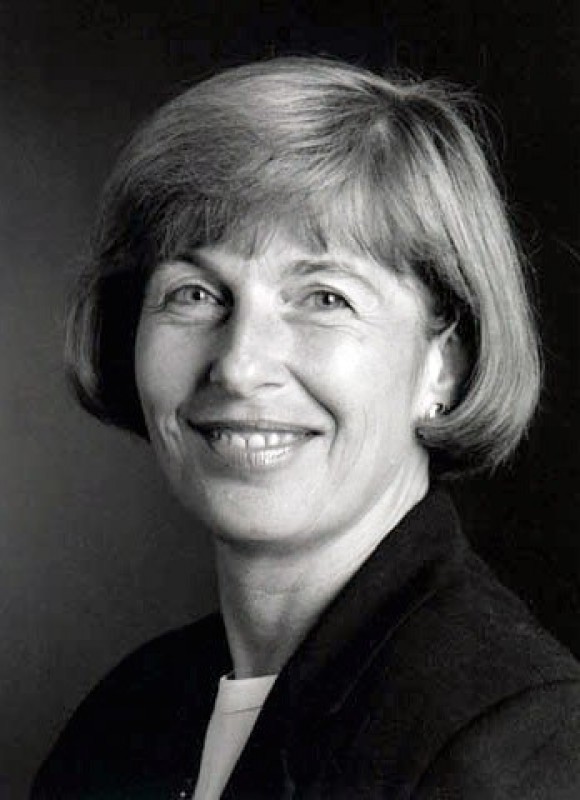Diane Blair Papers
As part of the celebration marking the opening of the Diane Blair Papers, Special Collections has created an exhibit filled with mementos of her career as an educator, author, citizen, and friend.

The papers of the late Diane Blair were opened to researchers in an afternoon ceremony at 3 p.m. on Tuesday, March 9, in the Helen Robson Walton Reading Room in Mullins Library.
The Diane Blair Papers were donated to the University of Arkansas Special Collections Department by James B. Blair on May 5, 2005. The collection comprises 113.5 linear feet and includes biographical materials, correspondence, newspaper clippings, research materials, notes, primary and secondary source documents, manuscripts, memorabilia, photographs, VHS recorded programs, audio interviews, and electronic data and databases. The materials are divided into five series: personal and family materials, professional materials, Bill and Hillary Clinton materials, general political materials, and photographs and audio materials.
Diane Blair was born Oct. 25, 1938, in Washington, D.C., and received a Bachelor of Arts in government from Cornell University in 1959. Blair earned her Master of Arts in political science at the University of Arkansas in 1967 and became a part-time lecturer for the university the following year. Arkansas Gov. Dale Bumpers appointed her chair of the Governor's Commission on the Status of Women in 1971, and on Feb. 14, 1975, Blair debated the Equal Rights Amendment in the Arkansas General Assembly against nationally known conservative Phyllis Schlafly. In 1976, Gov. David Pryor appointed her to chair a Commission on Public Employee Rights.
She was named University of Arkansas Outstanding Faculty Member by students in 1976 and 1978 and was promoted to assistant professor in 1979. She received the J. William Fulbright College of Arts and Sciences Master Teacher Award in 1982. Blair published two books: Silent Hattie Speaks: The Personal Journal of Senator Hattie Caraway (Westport, Conn.: Greenwood Press, 1979), about an Arkansan and the first woman to be elected U.S. Senator, and Arkansas Politics and Government: Do the People Rule? (Lincoln: University of Nebraska Press, 1988, reprinted 2005), for which she earned the Virginia Ledbetter Award in 1991, given for the best book published about Arkansas history or culture. She authored or co-authored 12 essays appearing in books, 21 professional journal articles, and many book reviews.
After Bill Clinton and Hillary Rodham moved to Fayetteville in 1974, Blair became their close friend and active promoter. Gov. Clinton appointed Blair to the Commission for the Arkansas Educational Television Network in 1980, a position she held until 1993. Taking leaves from the university, Blair served as senior researcher in the 1992 Clinton presidential campaign and as senior adviser in the 1996 re-election campaign. During the 1992 Clinton presidential campaign, Blair gathered audio interviews of staff members involved in the campaign. Sixty-five of the interviews, for which the Libraries have obtained ownership, are included in the Blair Papers. As president, Clinton appointed her twice, in 1993 and 1997, to the Board of Directors of the Corporation for Public Broadcasting, on which she served as chair from 1996-2000. In 2003, the board named its new boardroom in her honor.
Blair was guest scholar at the Brookings Institution in Washington in 1993. She was selected by Arkansas Business Magazine as one of the "Top 100 Arkansas Women" in 1995, 1996, and 1997. In 1998 the Midwest Political Science Association presented a panel in honor of her work as a political scientist and educator. Blair was awarded the honorary Doctor of Laws by the University of Arkansas in 2000. She died on June 26, 2000. In her honor, her husband Jim Blair bestowed an endowment to the Fayetteville Public Library and endowed the Diane Blair Chair of Political Science at the University of Arkansas. The Diane D. Blair Center of Southern Politics and Society at the University of Arkansas was established with funds appropriated from Congress with the support of President Clinton in late 2000.
(Click thumbnail image to enlarge.)
